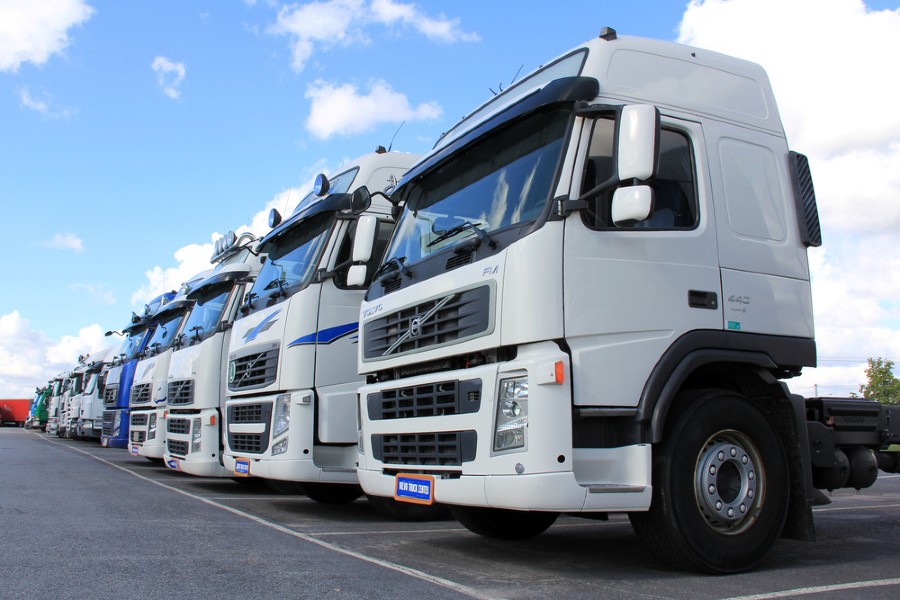
In the state of New York, as in the rest of the United States, there are drug testing requirements designed to maintain a drug-free work environment and prevent accidents due to substance abuse.
Below is a breakdown of the different drug testing requirements you can expect as a CDL driver in New York.
New York CDL Drug Testing Regulations
Drug testing for commercial truck drivers in New York is regulated primarily by federal guidelines set forth by the Department of Transportation (DOT). The DOT’s Federal Motor Carrier Safety Administration (FMCSA) is responsible for establishing and enforcing drug testing regulations for the trucking industry nationwide.
The key regulations governing drug testing for commercial truck drivers include:
Pre-Employment Testing: Before hiring a driver, they must pass a drug screening for specific controlled substances, such as marijuana, cocaine, opioids, amphetamines, and PCP.
Random Testing: Commercial truck drivers are subject to random drug testing throughout the year, with the FMCSA establishing specific percentages for such tests that can vary annually.
Post-Accident Testing: After a fatal or injury-causing accident that requires immediate medical attention or vehicle tow-away, the drivers involved must undergo drug testing.
Reasonable Suspicion Testing: When supervisors have reason to suspect drug use, they may request a drug test based on observed behavior, such as slurred speech or erratic driving.
Return-to-Duty Testing: If a driver tests positive for drug use, they must complete a return-to-duty process. This process involves a follow-up drug test and an evaluation by a qualified substance abuse professional. The driver must also comply with any recommended treatment.
Follow-Up Testing: Drivers who have undergone the return-to-duty process are subject to random follow-up drug tests. The frequency and number of these tests are determined by the substance abuse professional.
The Drug Testing Process
The drug testing process follows a strict protocol to ensure accuracy and integrity. It typically involves the following steps:
Selection: Drivers selected for random testing are notified, and they must report to a designated testing facility within a specified time frame.
Collection: A trained specimen collector collects the driver’s urine sample under controlled conditions to maintain the integrity of the test.
Laboratory Testing: The urine samples are sent to a certified laboratory for analysis. These labs use procedures and standards established by the Substance Abuse and Mental Health Services Administration (SAMHSA) to detect the presence of drugs.
Medical Review Officer (MRO) Review: A licensed MRO reviews the results to ensure accuracy and validity. If a positive result is found, the MRO contacts the driver to verify or refute the findings.
Reporting and Record-Keeping: Results are reported to the employer, and the employer maintains records in compliance with federal regulations.
Drug testing for commercial truck drivers is essential to ensure road safety. Compliance with regulations is crucial, as non-compliance can lead to penalties and driving privilege loss.
The drug testing requirements set forth for CDL drivers play a large part in road safety. These regulations, enforced by the FMCSA and DOT, ensure drivers remain drug-free while operating commercial vehicles. Public safety, accident prevention, and employee well-being are the driving forces behind these essential drug testing requirements. Drivers and employers in the trucking industry need to be aware of and fully comply with these regulations to ensure the safe and efficient operation of commercial vehicles.
- LISC CEO Michael T. Pugh Recognized Among 2024 Worthy 100 Leaders
- NY Lawmakers Celebrate Historic MENA Data Recognition Bill Signed By Hochul
- Sponsored Love: Leadership Skills Training Courses: Invest In Your Future Today
- Senator Hoylman-Sigal Calls On Independent Schools To Adopt NYC Public School Calendar
- Mayor Adams Celebrates 65 Million NYC Visitors In 2024, Second-Highest Ever
Become a Harlem Insider!
By submitting this form, you are consenting to receive marketing emails from: . You can revoke your consent to receive emails at any time by using the SafeUnsubscribe® link, found at the bottom of every email. Emails are serviced by Constant Contact









